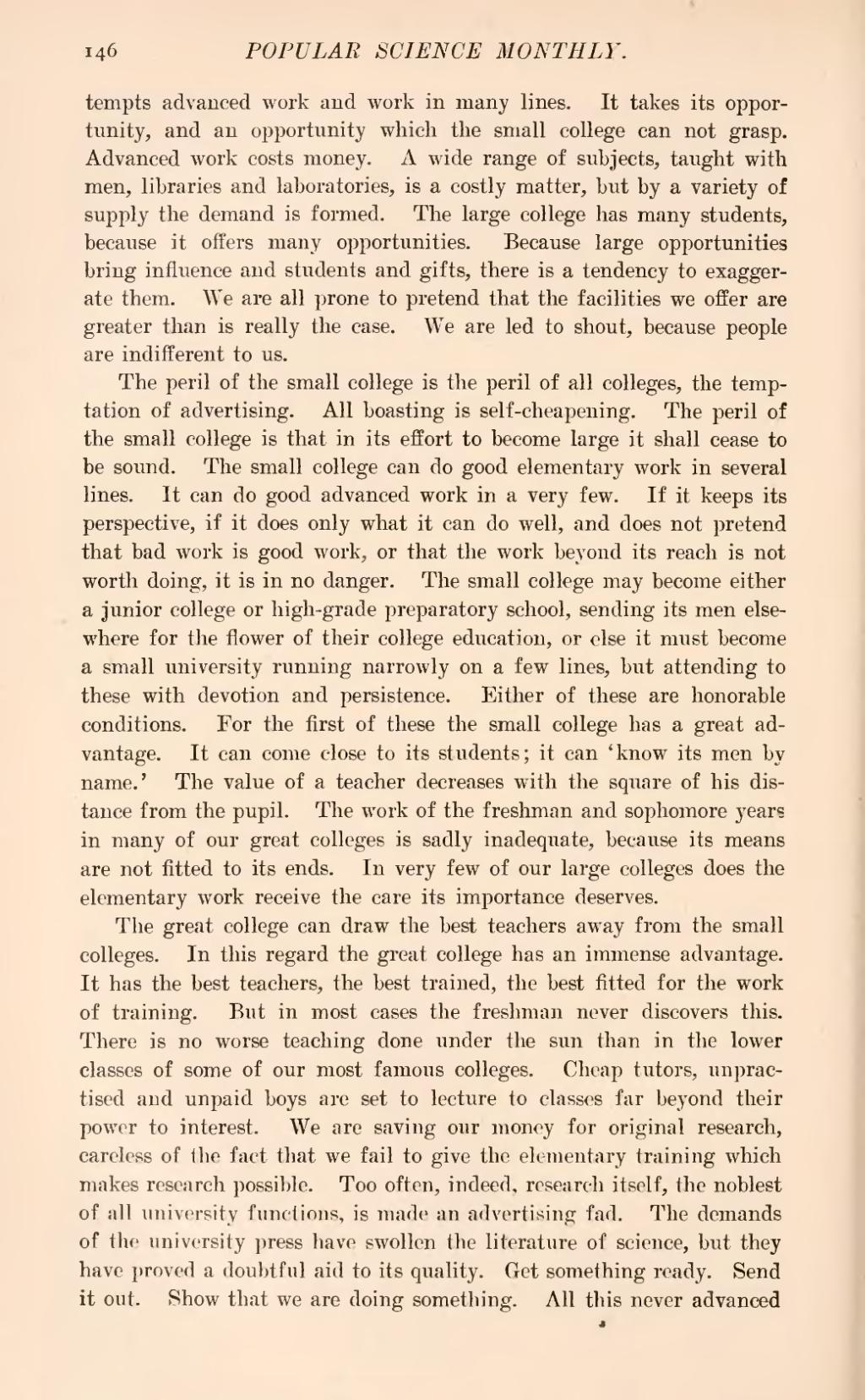tempts advanced work and work in many lines. It takes its opportunity, and an opportunity which the small college can not grasp. Advanced work costs money. A wide range of subjects, taught with men, libraries and laboratories, is a costly matter, but by a variety of supply the demand is formed. The large college has many students, because it offers many opportunities. Because large opportunities bring influence and students and gifts, there is a tendency to exaggerate them. We are all prone to pretend that the facilities we offer are greater than is really the case. We are led to shout, because people are indifferent to us.
The peril of the small college is the peril of all colleges, the temptation of advertising. All boasting is self-cheapening. The peril of the small college is that in its effort to become large it shall cease to be sound. The small college can do good elementary work in several lines. It can do good advanced work in a very few. If it keeps its perspective, if it does only what it can do well, and does not pretend that bad work is good work, or that the work beyond its reach is not worth doing, it is in no danger. The small college may become either a junior college or high-grade preparatory school, sending its men elsewhere for the flower of their college education, or else it must become a small university running narrowly on a few lines, but attending to these with devotion and persistence. Either of these are honorable conditions. For the first of these the small college has a great advantage. It can come close to its students; it can 'know its men by name.' The value of a teacher decreases with the square of his distance from the pupil. The work of the freshman and sophomore years in many of our great colleges is sadly inadequate, because its means are not fitted to its ends. In very few of our large colleges does the elementary work receive the care its importance deserves.
The great college can draw the best teachers away from the small colleges. In this regard the great college has an immense advantage. It has the best teachers, the best trained, the best fitted for the work of training. But in most cases the freshman never discovers this. There is no worse teaching done under the sun than in the lower classes of some of our most famous colleges. Cheap tutors, unpractised and unpaid boys are set to lecture to classes far beyond their power to interest. We are saving our money for original research, careless of the fact that we fail to give the elementary training which makes research possible. Too often, indeed, research itself, the noblest of all university functions, is made an advertising fad. The demands of the university press have swollen the literature of science, but they have proved a doubtful aid to its quality. Get something ready. Send it out. Show that we are doing something. All this never advanced
